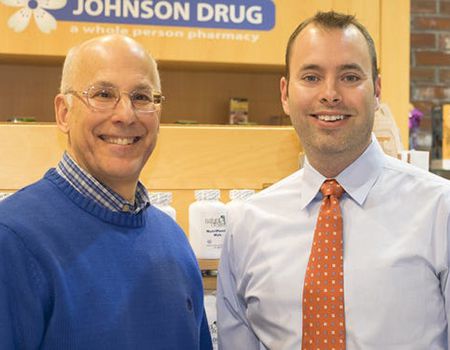
Please Share your Email if you Wish to Receive the Golden Tips & Tales Newsletter from History of Ceylon Tea Website

An estimated 159 million Americans regularly drink tea, and according to the Tea Association, in 2020 we downed more than 3.8 billion gallons of it – primarily iced and black. While that may sound like a lot, when averaged over our population, we lag behind many countries including Turkey, the United Kingdom and China.
Part of the reason some cultures around the globe have consumed tea for nearly five millennia has been to take advantage of its health benefits. Fast forward to 2021 and tea’s ability to support our immune system amid the COVID-19 pandemic is as important as ever.
Traditional teas like black, green and oolong are full of polyphenols like epigallocatechin gallate (EGCG), naturally occurring organic compounds that have a potent antioxidant effect on our bodies and therefore may reduce chances of heart disease and cancer. EGCG and the amino acid L-theanine both pack an immune-boosting punch. To get the most antioxidant bang for your buck, avoid adding milk or cream because their proteins may inhibit some polyphenols.
Depending on variety, the amount of time and the temperature in which tea leaves are steeped will impact antioxidant levels. White tea should be steeped longer in hot water while black tea is best steeped for a short amount of time in very hot water. Green tea is sensitive to temperature, so prolonged cold steeping, roughly two hours, yields the same results as a quick hot steep. Regardless of how you enjoy traditional teas, the important thing is to get into the habit of consuming antioxidants and staying hydrated.
Among traditional teas, no one variety is significantly better than another. But when it comes to addressing varied health concerns, herbal teas have some merit. For example, to help your body fight back, astragalus, rosemary, elderberry, echinacea, licorice root and chamomile teas are a few good options to boost your immune system.
Because stress can weaken your immune system, sipping tea more often may help you relax and trying a tea brewed with lavender, chamomile, peppermint or passionflower may have a positive impact. For all herbal teas, be sure to check with your physician or pharmacist about herb-drug interactions if you are on prescription medication.
Even though the FDA says most people can safely consume up to 400 milligrams of caffeine a day (that’s about eight cups of tea), you have to be sure to count other caffeinated foods and beverages that you may be consuming, like chocolate and soda, in your total. If you suffer from insomnia or adrenal insufficiency, 400 milligrams will be far too much. In that instance, it’s best to check with your health care provider.
Speaking of caffeine, be mindful that while a cup of black coffee – best when brewed from organic beans – offers some of the same health-promoting properties as tea, it has twice the amount of caffeine as a cup of tea. So if you are sensitive to caffeine, tea is the better option.
There are ways to maximize the benefits of both tea and a healthy diet. First, avoid taking supplements and drinking caffeinated tea at the same time. Caffeine can inhibit the absorption of vitamins and minerals, especially vitamin D, calcium and iron. Similarly, avoid drinking a cup of black tea after an iron-rich meal like those with red meats, leafy greens and beans to ensure the body properly absorbs the mineral. In either case, it is OK to drink caffeine-free herbal teas; those with peppermint, ginger and fennel will actually aid digestion.
Rest assured that no matter when and where you enjoy your tea – be it in a teacup indoors after a late-night nor’easter or in a tall glass over ice on a sunlit porch – you and 159 million other Americans who drink tea on a daily basis can reap the rewards of a refreshing habit that will strengthen your immune system and help keep you healthy as we continue to endure the pandemic.
Gary Kracoff has a degree in naturopathic medicine and is a registered pharmacist and John Walczyk is a compounding pharmacist at Johnson Compounding & Wellness in Waltham, Mass. For more information, visit www.naturalcompounder.com. Readers with questions about natural or homeopathic medicine, compounded medications, or health in general can e-mail gary@naturalcompounder.com or call 781-893-3870.
Comments
(In keeping with the objectives of this website, all COMMENTS must be made in the spirit of contributing to the history of this estate, planter or person i.e. names, dates & anecdotes. Critical evaluations or adverse comments of any sort are not acceptable and will be deleted without notice – read full Comments Policy here)